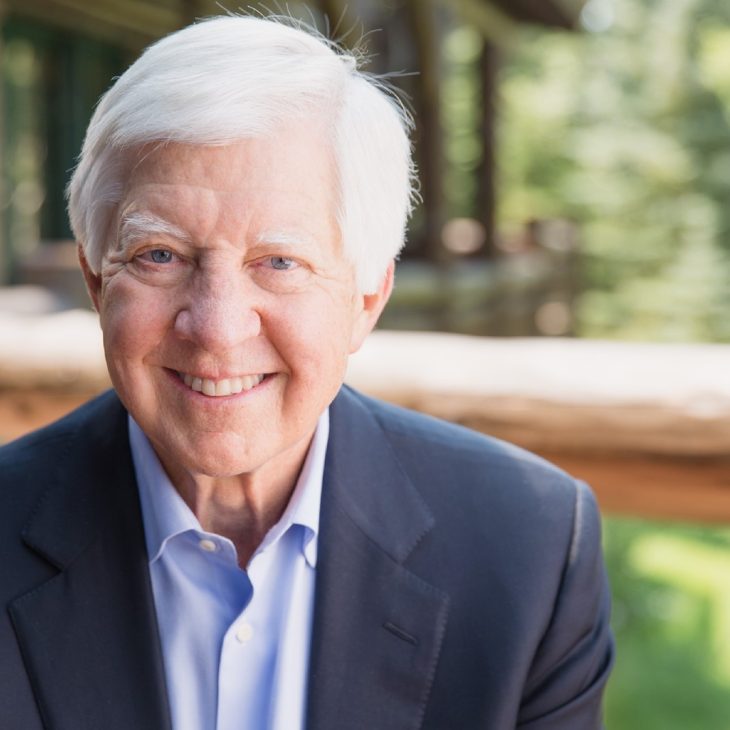Conversations with Eboo: Bill George
June 2, 2020

The most influential leadership book I’ve ever read is True North by Bill George. The basic point is simple to grasp but takes a lifetime to absorb: the core of your leadership comes out of your ethics, and your ethics are shaped by how you interpret your life story. Spend time going deep into yourself, shape your core into something that you’re proud of, and then bring it into the world. Don’t cut corners, and don’t expect to be popular all the time.
If you detect more than a whisper of spirituality in this, you’re right. Bill George is one of the few people who has reached the top of the pile in both corporate leadership and academic life, and talks openly about how his faith has shaped him. In Bill’s case it’s Christianity, but he has a deep curiosity for how different faiths and expressions of spirituality guide people. It’s how we became friends, actually. In the years immediately following 9/11, when Islam was regularly demonized on national television, he reached out to me to ask how being a Muslim shaped my ethical core. It is a conversation I cherish to this day.
This doesn’t mean you have to be religious or spiritual to be a good leader, but in Bill’s view you have to understand, in a visceral way, that you come from things bigger than you and that you serve things bigger than you.
The crisis that we currently face is bringing this into sharp relief. “It’s the caregivers and the front line workers who are leading us now,” Bill told me in a recent conversation. “Maybe they’re the ones that always have.”
That’s a striking comment from someone who regularly counsels Fortune 500 leaders. But the people that Bill admires the most right now aren’t the ones who are making lines on a chart move from side to side, they’re the ones who are rushing to the front lines. Bill talks about one of his Harvard students, an MD/MBA, who spent 33 days straight working shifts on the front lines of the hospital where he serves as an executive. He wanted to learn what was going on, and he wanted to lead from where the action was.
That’s a lesson all leaders should learn, Bill told me. You need to plot a course that strengthens your organization and serves the widest group possible. You don’t have time to analyze everything or consult with everyone. Your instincts take over. And if you have done your work well over the years, if you have gone deep inside and become crystal clear about your true north, then your instincts and your ethics will be one and the same. You can trust that your leadership will rise to the challenge.
Share
Related Articles
American Civic Life
The Interfaith Legacy of Muhammad Ali: “The Wise Man Changes”
Interfaith America Interview
American Civic Life
How Everyday People, and Humility, Give this Policy Maker Hope



